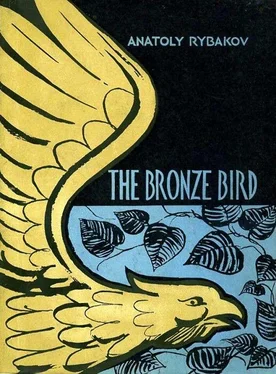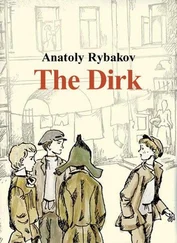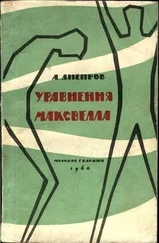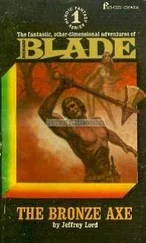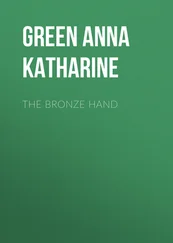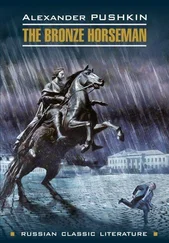Anatoly Rybakov - THE BRONZE BIRD
Здесь есть возможность читать онлайн «Anatoly Rybakov - THE BRONZE BIRD» весь текст электронной книги совершенно бесплатно (целиком полную версию без сокращений). В некоторых случаях можно слушать аудио, скачать через торрент в формате fb2 и присутствует краткое содержание. Город: Moscow, Год выпуска: 1956, Издательство: Foreign Languages Publishing House, Жанр: Детские приключения, Детектив, Исторические приключения, на английском языке. Описание произведения, (предисловие) а так же отзывы посетителей доступны на портале библиотеки ЛибКат.
- Название:THE BRONZE BIRD
- Автор:
- Издательство:Foreign Languages Publishing House
- Жанр:
- Год:1956
- Город:Moscow
- ISBN:нет данных
- Рейтинг книги:5 / 5. Голосов: 1
-
Избранное:Добавить в избранное
- Отзывы:
-
Ваша оценка:
- 100
- 1
- 2
- 3
- 4
- 5
THE BRONZE BIRD: краткое содержание, описание и аннотация
Предлагаем к чтению аннотацию, описание, краткое содержание или предисловие (зависит от того, что написал сам автор книги «THE BRONZE BIRD»). Если вы не нашли необходимую информацию о книге — напишите в комментариях, мы постараемся отыскать её.
THE BRONZE BIRD — читать онлайн бесплатно полную книгу (весь текст) целиком
Ниже представлен текст книги, разбитый по страницам. Система сохранения места последней прочитанной страницы, позволяет с удобством читать онлайн бесплатно книгу «THE BRONZE BIRD», без необходимости каждый раз заново искать на чём Вы остановились. Поставьте закладку, и сможете в любой момент перейти на страницу, на которой закончили чтение.
Интервал:
Закладка:
Alexander Ivanovich, the headmaster of Misha's school, once said that "moods" were the inevitable companions of adolescence. Alexander Ivanovich was, of course, a clever man and an experienced teacher,-but some of his ideas were old-fashioned. What was this adolescence?5 It was an age like any other. Misha was firmly convinced that "moods" were nothing but a manifestation of moral instability. That was why decadent verses were written. As soon as a person began to write poetry, it meant he was getting "moods."
Then, quite unexpectedly to himself, Misha began to write poetry. To be exact, he started writing one poem and he was still at it. He could not find the rhymes for the last two lines. Naturally, it was not decadent but genuinely revolutionary.
It came to him when he was sitting on the bank of the Utcha. The crimson sun slowly disappearing behind the hills in the distance brought back the memory of the tiny railway station where the adventure of the dirk ended, the lights of the disappearing troop train, Red Army soldiers, Polevoi, and the poster depicting a worker breaking with his sledge hammer the chains fettering the globe...
Suddenly, one rhyme, then another formed in his mind... After almost two weeks' labour, Misha produced a poem which he knew was inferior but which he liked very much. He hoped that in due course he would finish the last two lines.
Try as he would, he could not make those last two lines fit. He could not get the rhyme.
He hunted for the rhyme in the evenings, when he sat by the camp-fire.
That evening, the camp-fire was unlike any other. The usual conversation could not get started. Nobody joked, nobody told funny stories. Zina Kruglova told the troop of an amusing answer a peasant woman had given at the abolition of illiteracy class, but nobody laughed. The troop was conscious of how responsible the moment was. Misha found himself in a solemn, romantic mood and longed to recite his poem. At the same time, he felt ashamed: a troop leader writing silly verse. But the poem was on the tip of his tongue and at last he could contain himself no longer and said:
"I have a feeling that we'll find something very important on the Goligin Brushwood Road. It will help us not only to clear Nikolai but also to solve a mystery. That feeling brought the affair of the dirk to my head: Polevoi, Nikitsky and all the others. And somehow without my knowing it I composed a poem. If you like, I'll recite it for you."
There was unanimous approval. Misha rose to his feet and, a little nervous and afraid that he would forget a line, recited his poem.
The troop listened in silence, a silence that reigned for some time after Misha had finished his recitation.
"But where's the end?" asked Genka, who was the first to speak.
"There's no end yet," Misha replied.
Suddenly he felt terribly ashamed. It seemed to him that his verses were bad, faulty, inartistic. He saw that the metre was wrong. And the rhyme was dreadful. It was stiff, high-flown and altogether unemotional. He shouldn't have recited them! What made him do it? What? He was not intending to be a poet. And all his friends were silent. They knew that the verses were bad but were not saying so out of respect for him. Why had he started all this! His hand stole into his pocket and tore the slip of paper with the poem into tiny pieces.
"It's not bad at all," Slava said. "Only there's no end and in places the metre is wrong. The first and third lines do not rhyme."
"That isn't necessary," Zina remarked.
"But desirable. Another thing-each line has a different number of syllables."
"But the idea is good," Genka said. "The minute I heard it, I remembered the railway station, the troop train and Commissar Polevoi. The reason you are criticizing it, Slava, is because you did not see it all. But Misha and I did. Ain't I right, Misha?"
"Yes," Misha said. "But you don't know why I wrote the poem. All of you looked so glum that I decided to liven you up a bit. I know the poem is third-rate, but I wanted to cheer you up and put some life into our dull camp-fire. So I composed the poem on the spur of the moment."
"You mean just now?" Genka asked sceptically.
"When do you think? I composed it as I went along." Misha stood up. "That's that! Turn in now, everybody, to your tents. And remember: nothing is going to happen to us. We'll be back soon. See that there's no panic. If we're not back by morning, you can look for us in the woods, near the Goligin Brushwood Road."
Chapter 40
DANGEROUS EXPEDITION
The camp grew still. Misha, Genka and Longshanks crept silently out of their tents and quickly made for the woods.
A full moon was shining down on the sleeping camp. It was so light that Misha could distinctly see the crowns of the trees. The sky above them was blue and the stars were out.
"How do you want to get to the woods: by the river-bank or across the meadows?" Longshanks asked in a whisper.
"The river-bank, past the boat station," Misha replied, also speaking in a whisper.
The small figures moved along a field path leading from the camp to the river. Longshanks was in front, with Misha following him and Genka bringing up the rear. Genka had fallen asleep in his tent and now he was dragging behind his friends, yawning and looking 'very miserable because he was feeling drowsy. He was a brave lad, but he loved to sleep..
Some distance away from the river, Misha told his friends to wait and stealthily crawled up to the boat station. It was bathed in moonlight. The boats were floating on the water, looking like black, sleeping fish. But there was nobody around. It was quiet. No voices, nor splashes could be heard.
Misha crawled back to his friends and they moved on.! It was about five kilometres to the woods. The road at first hugged the river-bank and then went across fields. The light from the moon made everything look fantastic and mysterious. Something rustled in the wheat. Furtive little animals darted across the road.
Two green eyes appeared in front and then vanished.
"It's a hare," Genka whispered, shaking off his drowsiness.
"A hare or a cat," Longshanks said.
The woods loomed up before the boys-unexpectedly black, sombre and huge.
"Where to now?" Longshanks asked in a trembling voice. He was still hoping that Misha's ardour would cool and he would turn back.
But that was the farthest away from Misha's thoughts.
"Take us to the swamp, only not by this path but by another. Make as little noise as possible."
Following Longshanks, the boys skirted round the fringe of the woods and entered it.
At once it became dark. Moonlight was struggling through the leafy tops of the trees and trickling on to the path in slender beams. The knotty roots of the trees lying across the path looked like black snakes rolled up in deep slumber.
The woods were alive with nocturnal sounds. Unseen birds-nightjars or bats-were flying between the trees. Every now and then the boys heard the crackle of,a dry branch, as though somebody were creeping up to them. Each time they heard that sound, Misha and Genka stopped instinctively. But Longshanks marched on and Misha and Genka moved after him. They knew that so long as Longshanks did not stop there was no danger.
They walked on in this fashion for quite a long time. Misha had completely lost his bearings. Without Longshanks, they would never find their way out. It was beyond Misha how Longshanks knew where to go.
In the meantime, the woods were getting sparser, the trees lower and shorter. Finally, the boys found themselves in a clearing.
Longshanks stopped and turned to Misha. In the moonlight his face looked deathly pale.
"The swamp's a minute's walk from here and the Goligin Brushwood Road is there," Longshanks whispered, his voice shaking.
Читать дальшеИнтервал:
Закладка:
Похожие книги на «THE BRONZE BIRD»
Представляем Вашему вниманию похожие книги на «THE BRONZE BIRD» списком для выбора. Мы отобрали схожую по названию и смыслу литературу в надежде предоставить читателям больше вариантов отыскать новые, интересные, ещё непрочитанные произведения.
Обсуждение, отзывы о книге «THE BRONZE BIRD» и просто собственные мнения читателей. Оставьте ваши комментарии, напишите, что Вы думаете о произведении, его смысле или главных героях. Укажите что конкретно понравилось, а что нет, и почему Вы так считаете.
